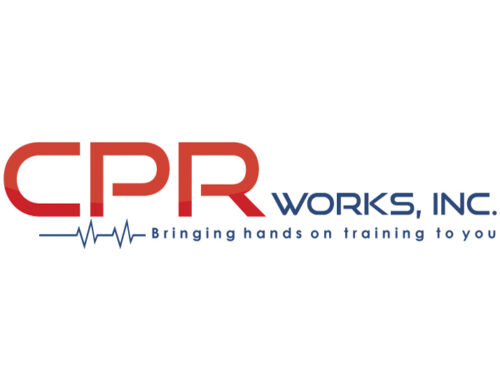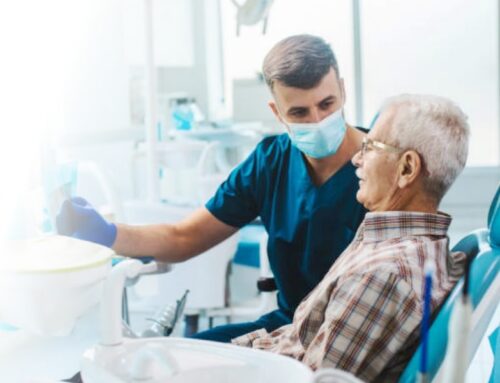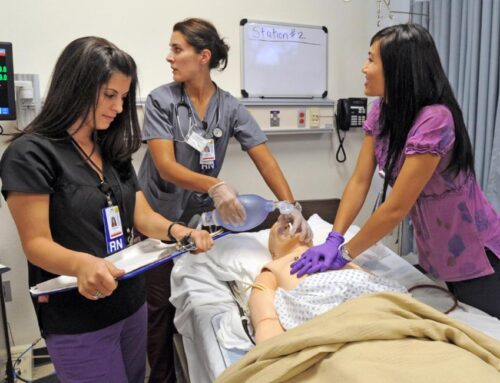The Significance of ACLS Training in Sedation Dentistry
The realm of sedation dentistry has greatly improved the way patients experience procedures, turning what could be daunting tasks into manageable and even pleasant moments. However, using sedation comes with its set of risks that demand vigilance and readiness. This is where Advanced Cardiovascular Life Support (ACLS) training plays a role for professionals. By undergoing training, dental teams are equipped with the skills and knowledge to effectively handle medical emergencies, ensuring the safety of patients during sedation procedures.
Exploring Sedation Dentistry
Sedation dentistry entails administering medications to help patients relax or sleep during treatments. This can range from sedatives like oxide (commonly known as laughing gas) to moderate or deep sedation techniques such as intravenous (IV) sedation. While these methods can ease anxiety and facilitate procedures, they also come with risks, particularly for patients with underlying health issues. Although rare complications like depression, airway blockage, and cardiovascular events may arise, requiring medical attention.
The Impact of ACLS on Sedation Dentistry
ACLS training surpasses life support (BLS) by offering guidance on managing critical cardiovascular and respiratory emergencies.
Dental professionals find ACLS training to be extremely valuable for a variety of reasons;
1. Dealing with Emergencies;
Sedation can hinder function, potentially causing hypoxia or even respiratory failure. ACLS training provides practitioners with the skills to identify and handle such emergencies, including airway management, ventilation techniques, and the utilization of advanced airway tools like endotracheal tubes and laryngeal masks.
2. Addressing Cardiovascular Complications;
Sedative medications can impact heart rate and blood pressure, sometimes resulting in heartbeats or cardiac arrest. ACLS training encompasses the identification and treatment of heart conditions involving the administration of life-saving drugs and the application of defibrillators. This knowledge plays a role in preventing and responding to emergencies during dental treatments.
3. Pre Procedure Evaluation and Risk Mitigation;
ACLS training emphasizes the significance of conducting an assessment of patients before administering sedation. Dental professionals learn how to evaluate a patient’s history, current medications, and factors that may increase the risk of sedation-related
4. Team Collaboration and Communication;
Efficient emergency response hinges on teamwork. ACLS training promotes communication skills and coordination among team members, ensuring that everyone comprehends their responsibilities in times of crisis and can collaborate effectively to manage emergencies.
Improving Patient Safety and Trust
One of the advantages of undergoing training for sedation dentistry is the boost it gives to patient safety. By being well prepared to deal with emergencies; dental professionals can significantly lower the chances of outcomes during sedation procedures. This readiness not only safeguards patients but also instills confidence regarding the practice. Knowing that their dental team is skilled in handling emergencies can ease patients’ concerns about sedation, encouraging them to seek treatment.
Adhering to Regulations and Ethical Guidelines
In regions regulatory bodies mandate that professionals offering sedation possess ACLS certification. This requirement underscores the level of care expected in practices providing sedation services. Moreover ethically speaking ensuring all team members are competent in managing emergencies aligns with the responsibility owed to patients. It showcases a dedication to their health and safety which holds importance in healthcare.
Final Thoughts
ACLS training isn’t merely a credential for professionals; it plays a crucial role in delivering safe and efficient sedation dentistry. By empowering teams with the knowledge to address respiratory and cardiovascular emergencies, ACLS training guarantees that patient safety remains a priority in rare instances of complications.
Investing in training is crucial for practices to enhance patient care and maintain patients’ trust in their dental providers.
By focusing on training and being prepared for emergencies dental professionals can ensure they provide sedation dentistry benefits while prioritizing safety and quality care.
Sources;
American Dental Association; Sedation and Anesthesia https://www.ada.
- Charlotte
- Rock Hill
- Gastonia
- Concord
- Cornelius
- Monroe
- Harrisburg
- Matthews
- Mint Hill
- Fort Mill
- Indian Land
- Kannapolis
- Belmont
- Wilmington
- Jacksonville
- Shallotte
- Carolina Beach
- Surf City
- Hampstead
- Sneads Ferry
- Leland
- Southport
- Greensboro
- High Point
- Hickory
- Columbia
- Florence
- Myrtle Beach
- North Myrtle Beach
- Surfside Beach
- Myrrells Inlet
- Conway
- Ocean Isle Beach





Leave A Comment